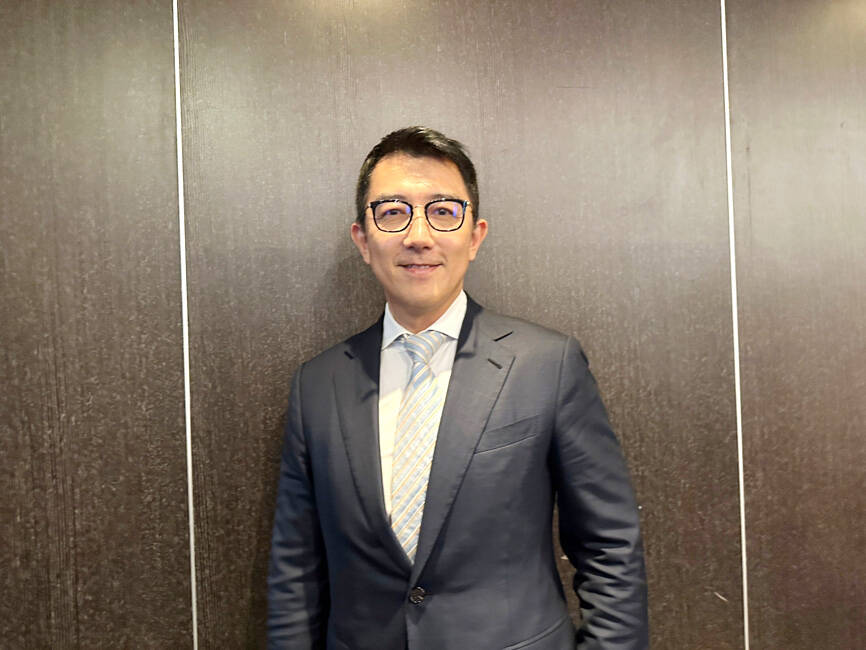Bora Pharmaceuticals Co (保瑞藥業) has acquired six brand product licenses, rights and process technologies in the US for US$38.5 million, and expects them to start contributing to revenue in the fourth quarter of this year, the company said in a filing with the Taiwan Stock Exchange yesterday.
Bora’s board of directors approved the deal with Morristown, New Jersey-based Almatica Pharma Inc, as the Taiwanese firm moves into the brand product market to diversify risks away from generic drugs, the filing said.
The deal would enable Bora to leverage its sales platforms to enter the brand product market, it said.

Photo: CNA
Established in 2008, Almatica —a US subsidiary of Alvogen Group — focuses on the development, acquisition and commercialization of pharmaceutical products. Its product portfolio includes psychiatry, pain management, anti-infective and cardiovascular treatments, the company’s Web site says.
The six brand products are Zestril, Tenormin and Tenoretic for cardiovascular treatment, and Forfivo XL, Naprelan and Fluoxetine HCL for treating central nervous system issues, Bora said.
Sales of the six drugs in the US totaled about US$220 million last year, the company said, citing data from life sciences researcher Iqvia Institute.
As the deal was conducted through Bora’s subsidiary TWi Pharmaceuticals Inc (安成藥), it would greatly bolster the generic-drug unit’s product portfolio in the US market, while reducing its concentration on generic drugs, Bora chairman Bobby Sheng (盛保熙) told an investors’ conference in Taipei yesterday.
After TWi completes its takeover of the six products’ licenses and rights, it can deploy Bora group’s contract manufacturing and development expertise for mass production, which would not only increase TWi’s profit, but also boost the parent company’s global contract manufacturing business, Sheng said.
Bora’s second-quarter net profit surged 192 percent to NT$700.83 million (US$21.92 million) from NT$239.99 million in the same period last year. That translated into earnings per share (EPS) of NT$8.95, compared with NT$3.2 a year earlier.
EPS in the first half of the year was NT$22.54, up from NT$5.57 a year earlier, while gross margin improved to 46.09 percent, from 37.12 percent, it said.
With cumulative revenue in the first half of the year jumping 220.5 percent year-on-year to NT$7.92 billion and a better business outlook, the company yesterday raised its annual revenue growth forecast to between 30 and 35 percent, from its previous estimate of 20 to 30 percent.
It also raised its gross margin forecast to between 45 and 50 percent, from its earlier projection of 45 percent.

TARIFFS: The global ‘panic atmosphere remains strong,’ and foreign investors have continued to sell their holdings since the start of the year, the Ministry of Finance said The government yesterday authorized the activation of its NT$500 billion (US$15.15 billion) National Stabilization Fund (NSF) to prop up the local stock market after two days of sharp falls in reaction to US President Donald Trump’s new import tariffs. The Ministry of Finance said in a statement after the market close that the steering committee of the fund had been given the go-ahead to intervene in the market to bolster Taiwanese shares in a time of crisis. The fund has been authorized to use its assets “to carry out market stabilization tasks as appropriate to maintain the stability of Taiwan’s

STEEP DECLINE: Yesterday’s drop was the third-steepest in its history, the steepest being Monday’s drop in the wake of the tariff announcement on Wednesday last week Taiwanese stocks continued their heavy sell-off yesterday, as concerns over US tariffs and unwinding of leveraged bets weighed on the market. The benchmark TAIEX plunged 1,068.19 points, or 5.79 percent, to 17,391.76, notching the biggest drop among Asian peers as it hit a 15-month low. The decline came even after the government on late Tuesday authorized the NT$500 billion (US$15.2 billion) National Stabilization Fund (國安基金) to step in to buoy the market amid investors’ worries over tariffs imposed by US President Donald Trump. Yesterday’s decline was the third-steepest in its history, trailing only the declines of 2,065.87 points on Monday and

TARIFF CONCERNS: The chipmaker cited global uncertainty from US tariffs and a weakening economic outlook, but said its Singapore expansion remains on track Vanguard International Semiconductor Corp (世界先進), a foundry service provider specializing in producing power management and display driver chips, yesterday withdrew its full-year revenue projection of moderate growth for this year, as escalating US tariff tensions raised uncertainty and concern about a potential economic recession. The Hsinchu-based chipmaker in February said revenues this year would grow mildly from last year based on improving supply chain inventory levels and market demand. At the time, it also anticipated gradual quarter revenue growth. However, the US’ sweeping tariff policy has upended the industry’s supply chains and weakened economic prospects for the world economy, it said. “Now

An employment discrimination lawsuit against contract chipmaker Taiwan Semiconductor Manufacturing Co (TSMC, 台積電) might soon be expanded after a hearing in a federal court in San Jose, California, on Tuesday to add 15 plaintiffs to the case. According to a court document, the lawsuit, which was refiled in November last year as a form of a class action with 13 plaintiffs in California, wants to add 15 plaintiffs from Arizona, where TSMC is building up its wafer fab capacity. TSMC first committed between 2020 and last year to invest US$65 billion in three advanced wafer fabs in Arizona. It then pledged an